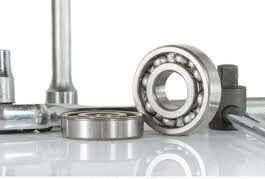Understanding customer requirements in Pakistan’s Bearings Industry.
Introduction:
Understanding and meeting customer needs is crucial for the growth and competitiveness of Pakistan’s dynamic bearings industry. Bearing manufacturers, whether they are serving local industries or international markets, must align their operations, products, and services with their customers’ needs and preferences. Transitioning from this imperative to a comprehensive examination of customer requirements within Pakistan’s bearings sector, this article identifies key drivers and challenges, as well as strategies to meet customer expectations.

Bearings Industry Customer Requirements Of Pakistan Understanding Customer Segments:
Industrial Machinery Manufacturers.
OEMs (Original Equipment Manufacturers) of industrial. Machinery needs bearings for many applications, including motors, pumps, conveyors, and machine tools. Understanding the performance standards, operating conditions, and reliability standards for different. Machinery segments are essential to meeting the industrial customer’s needs.
Transitioning to the automotive sector, bearings are essential components. Required by automotive manufacturers and aftermarkets. Suppliers for vehicles such as passenger cars. Commercial trucks, motorcycles, and farm machinery. To meet the needs of automotive clients. It is important to consider customization, durability, and compatibility.
Moving on to the construction and infrastructure segment. Bearings are indispensable for construction companies. Infrastructure developers, and manufacturers of heavy equipment. Such as cranes, earthmovers, and excavators. Bearings are required to withstand heavy loads, high speed, and harsh. Conditions of construction and infrastructure. This necessitates robust and reliable solutions.
Bearings Industry Customer Requirements Of Pakistan Performance and Reliability:
Load Capacity.
Customers expect bearings with adequate load-carrying capacity, fatigue resistance, and longevity for reliable performance and long-term service. Transitioning from this expectation to the design aspect, bearings designed with optimal load distribution, material selection, and surface treatment enhance durability and reliability in a variety of operating conditions.
Moving on to precision and tolerance considerations, precision bearings play a critical role in applications that require high rotational speed, low friction, and minimal noise or vibration levels. Precision machinery and equipment will perform smoothly and accurately if they meet tight tolerances, requirements for surface finish, and geometric accuracy.
Customization and adaptability:
Application-Specific Solutions.
Customers often need bearings that are tailored to specific applications such as high speeds, extreme temperatures, corrosive conditions, and other factors. Transitioning from this customer requirement to manufacturing capabilities, manufacturers can meet diverse customer needs by offering customization options for bearing design, materials, and lubrication.
Moving on to flexible manufacturing, flexible manufacturing processes such as rapid prototyping and small-batch production allow for the timely delivery of bearing solutions. The adoption of agile manufacturing techniques and modular design methods facilitates the ability to respond quickly to market dynamics and customer needs.
After-sales service and technical support:
Application Engineering.
The technical support and application engineering expertise help the customer select the correct bearings to meet their requirements and operating conditions. Transitioning from this assistance to collaborative efforts, collaboration with customers in design optimization, performance tests, and troubleshooting increases customer satisfaction and loyalty.
Moving on to aftersales support, after-sales services like maintenance training, installation assistance, and bearing failure analyses strengthen customer relationships and build trust. A rapid response to inquiries from customers, warranty claims, and service requests shows a commitment to quality and care for the customer.
Quality Assurance and Compliance:
Customers are more confident about the quality of products and reliability when they meet international standards. Transitioning from this assurance to quality assurance practices, implementing strict quality control measures and inspection protocols as well as traceability systems will ensure compliance with regulatory requirements.
Moving on to continuous improvement strategies, a culture of continuous improvement and Six Sigma methods, such as lean manufacturing and Six Sigma, promotes excellence in terms of product quality, efficiency, and customer satisfaction. Manufacturers can identify areas of improvement by soliciting feedback from their customers, tracking performance metrics, and performing root cause analyses.
Market Intelligence & Collaboration:
Customer feedback and market research.
Manufacturers can anticipate changing customer needs by analyzing. Feedback from customers, surveys of the market, and trends in the industry. Transitioning from this proactive approach to competitive analysis. analyzing the offerings of competitors, benchmarking. Their performance, and conducting market segmentation analyses inform strategic decision-making efforts and product development.
Moving on to collaboration with industry. Collaboration with industry associations and trade bodies. As well as research institutions can facilitate knowledge transfer, technology transfer, and collaborative innovation. Participating in forums, conferences, and advisory boards for customers and industry. Strengthens relationships between companies and encourages mutually beneficial partnerships.
Conclusion:
In Pakistan’s bearings sector, meeting customer needs is essential to success. Diverse applications, challenging operating conditions, and changing market dynamics influence customer expectations. Bearing manufacturers can gain an edge in the market by understanding. their customer segments, prioritizing reliability and performance, offering customization, and providing. Technical assistance and after-sales service, and ensuring compliance.
Transitioning from understanding customer requirements to achieving them Growth and innovation. Pakistan’s bearings sector can achieve future success by adopting a customer-centric strategy and a commitment to excellence.
0 Comments